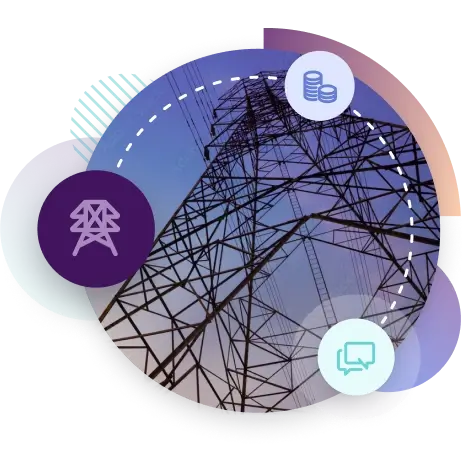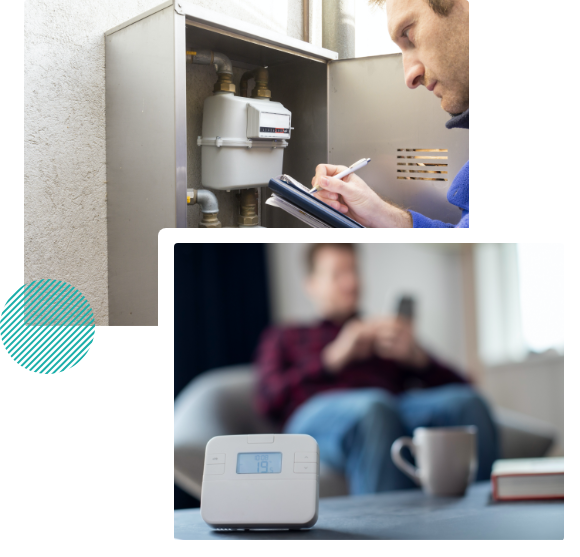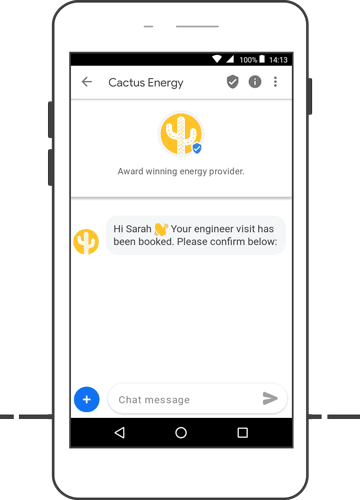SMS solutions for utility providers
Engage customers and contractors with SMS and rich messaging
Esendex helps utility, energy and power providers to streamline communications with appointment reminders, account updates, disruption notices and seamless customer support. Our SMS solutions enable you to meet customer demand, build trust and reduce the risk of accounts falling into arrears.

Customers expect seamless communication with their utility companies and fast, efficient issue resolution. Esendex helps providers deliver, with secure and reliable SMS to advise customers directly about critical events, like power or water outages, as well as providing payment reminders and contract updates.
Collect payments more effectively
Collect payments on time with SMS solutions that send a simple prompt to customers to settle balances.
Reduce missed appointments
Use SMS reminders and confirmations to make sure customers are at home and available for scheduled appointments.
Proactive notifications and alerts
Reduce contact centre call volumes by alerting customers to scheduled downtime or maintenance work.
Introduce self-serve options
Provide customers the ability to self-serve, from supplying a meter reading to switching a tariff or finding an answer to a question.

Integrate seamlessly with existing tech
Esendex can be set up in just minutes – without the need for IT support.
Utility providers can save time with integration and get started on delivering effective communications almost immediately.
Connect with our online SMS platform or integrate with our SMS API.
Automate customer service to reduce support costs
Easily create and send SMS without doing any heavy lifting.
Automated SMS for maintenance appointment reminders and payment requests saves valuable employee time so your team can focus on providing value added support.
IVR, SMS chat or a 24/7 chatbot, can support faster customer query resolution while reducing contact centre volume.

Unlock the power of SMS for your utility business.
Discover what our mobile messaging platform can do for you.

Boost engagement by connecting customers on the channels they love
Customers will appreciate the flexibility of communicating on a number of channels. With an open rate of up to 98% SMS messages are almost guaranteed to be read – making payment and appointment reminders more effective.
Esendex also supports WhatsApp, RCS and email to suit all customer preferences.
Protect personal information
Utility companies need to collect highly-sensitive personal information such as payment details, addresses, names and phone numbers, so security is critical.
Our platform is accredited to ISO27001 and FSQS standards and is fully compliant with consumer protection laws, including GDPR.


Build loyalty and stand out from competitors
Improve customer satisfaction with seamless communication and excellent support to drive customer loyalty and retention. With its high engagement rates and reach, SMS is one of the most effective communication and marketing tools, and is perfect for highlighting a deal or promoting a new service.
SMS surveys also allow you to collect key insights from staff or customers to improve processes and encourage positive reviews.
Customer success stories

Increasing final debt payment from 4% to 19% with mobile messaging automations
Discover how nPower cut call centre and direct mail costs, and collected final payment balances profitably with the Esendex mobile messaging solution.
Explore our latest content
Let’s start sending, together.
Discover the full power of our mobile messaging platform.



